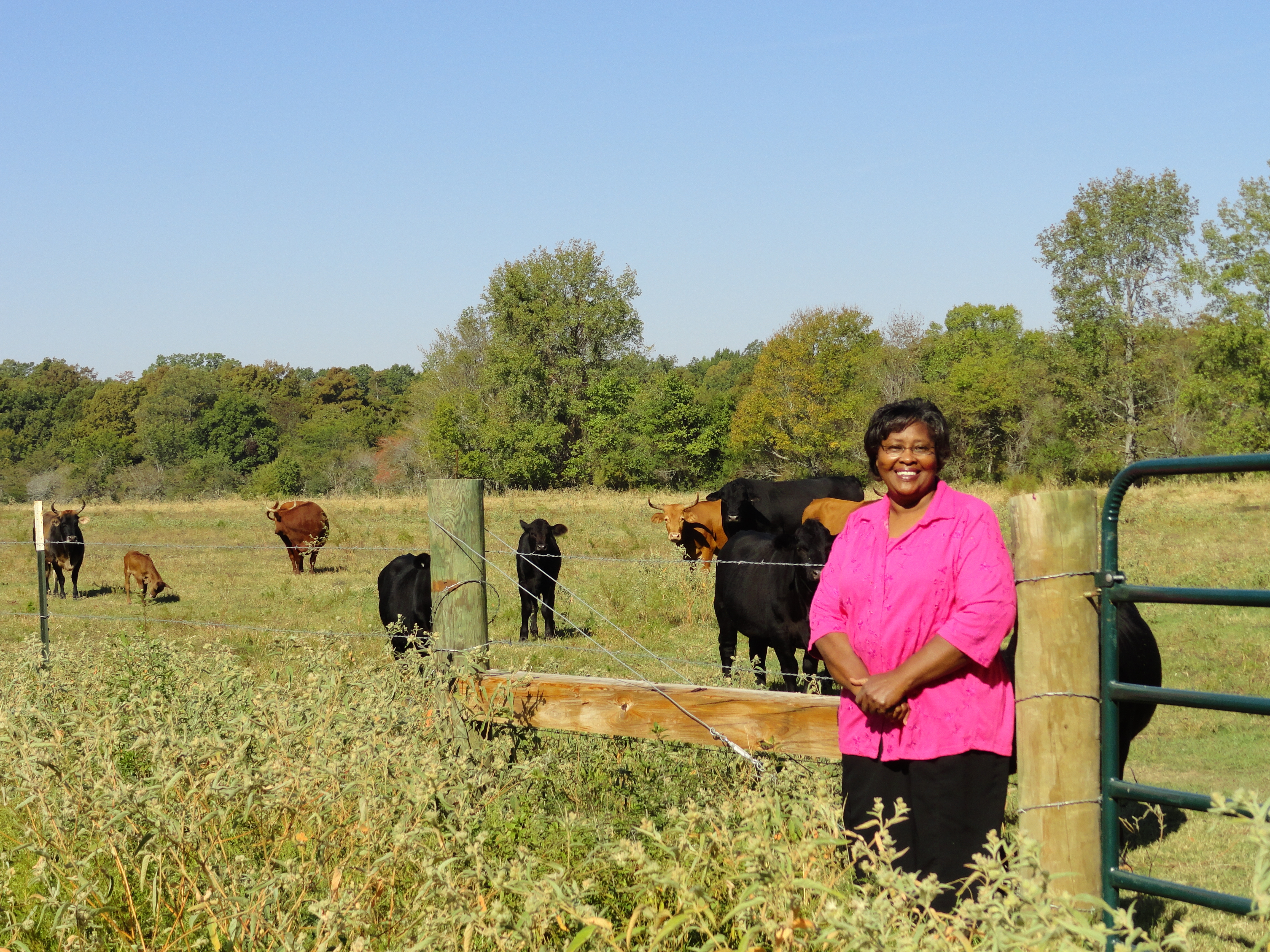
by J. Latrice Hill, FSA Outreach Program Lead
Curtistene Jackson knows all too well the challenges farming can bring. Being a socially disadvantaged female farming in Arkansas has not been easy.
Ever since her late husband Lawrence passed away in 2008, Curtistine, along with their son William, has taken the reins of the Jackson family farm. The Jacksons have owned their farm since 1990. Jackson first started working on the family farm at the age of 18. The legacy he started with his vegetable and livestock farm is now being carried on by his wife and son.
Curtistene maintains about 19 adult beef cows and bulls, and six non-adult cows on her farm’s pastureland. The entire operation consists of fruit and vegetables —purple hull peas, butterbeans and watermelon, as well as cattle and swine.
Last summer Drew County Arkansas experienced a severe drought. The extreme weather condition caused local farmers and ranchers with livestock and pastures to suffer feed losses. FSA’s Livestock Forage Program (LFP) was enacted in the county and the program advertised through county office newsletters and word of mouth.
Curtistene came to the county office to take care of her 2011 Non-Insured Assistance Program (NAP) claim for losses on her vegetables and hay production. While there, she was told about the LFP program and how it could help assist her to recover from extra feed costs on her livestock.
She signed up her farm’s improved pasture, plus additional acreage of native pasture adjoining her farmland. Her losses of grasses for pasture grazing and her 25 head of cattle qualified for LFP payments. Curtistene used the funds to purchase more hay and minerals for the livestock.
She has also signed up for several programs through the Farm Service Agency and NRCS. She is currently a NAP Policy holder for her vegetable crops and hay forage, an LFP disaster assistance participant, a Livestock Indemnity Program (LIP) participant, a Direct and Counter-Cyclical Program (DCP) participant, as well as other programs administered by NRCS.
“The certification of Mrs. Curtistene Jackson’s Socially Disadvantaged Farmer or Rancher status has enabled her to participate in many programs she would otherwise not be able to benefit from because of limitations,” said Christa Kimbrell, county executive director in the Monticello, Ark. FSA Office.





